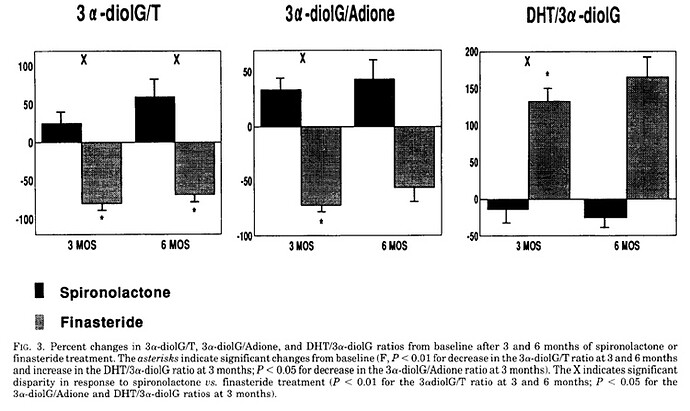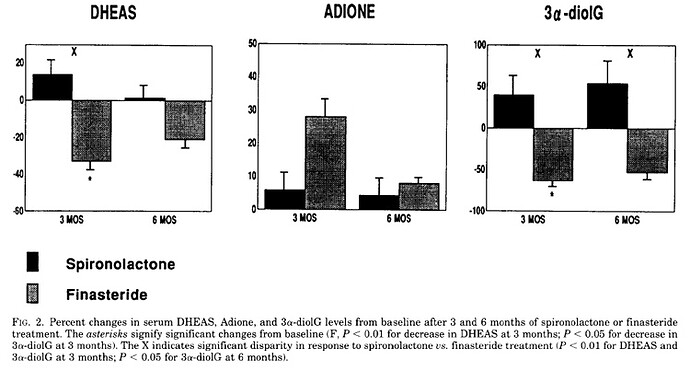Note: hirsutism = excessive and increased hair growth in women (often facial).
Comparison of high-dose finasteride (5 mg/day) versus low-dose finasteride (2.5 mg/day) in the treatment of hirsutism
eje-online.org/cgi/reprint/147/4/467.pdf
Page 4:
"… The administration of finasteride is associated with a decrease in DHT and DHEAS levels and an increase in total testosterone levels (9, 11, 22, 24).
In our previous study (10), we have shown that serum E2 and SHBG levels were increased and DHEAS levels were decreased significantly at 12 months.
In other previous studies (9, 25, 26), it has been shown that serum E2 levels in hirsute women during finasteride treatment were unchanged.
In the present study, no significant differences in the FSH, LH, free testosterone, testosterone, androstenedione, SHBG, 17-OHP and DHEAS levels were found in either group.
E2 levels were significantly higher at the end of the 6 and 12 months of therapy when compared with baseline values ðP , 0:05 and P , 0:02Þ only in group II (5mg finasteride/day).
Inhibition of 5a-reductase by finasteride leads to an accumulation of testosterone which is converted to E2 by aromatase (27). It may account for higher levels of E2 after high-dose finasteride therapy.


